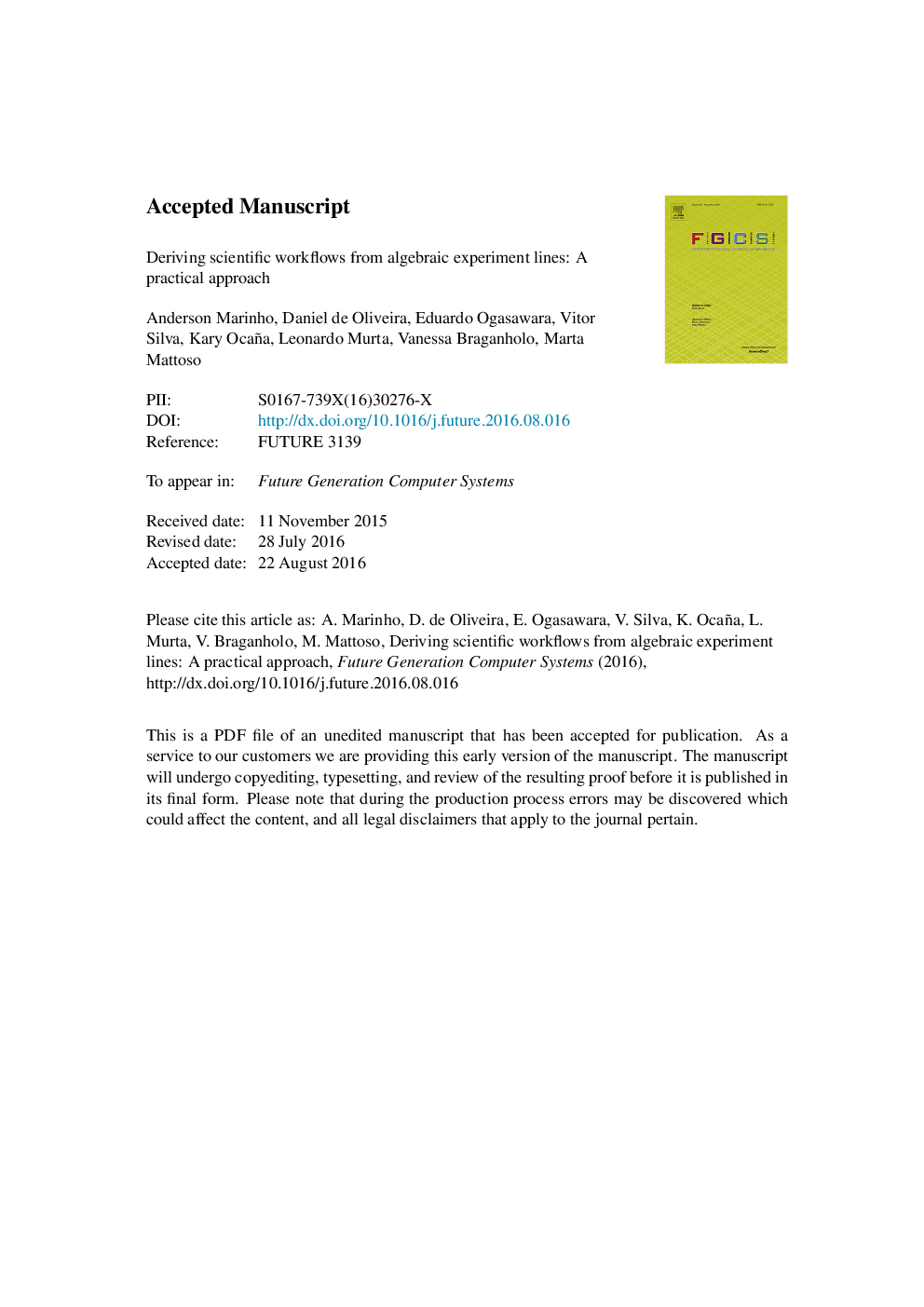| Article ID | Journal | Published Year | Pages | File Type |
|---|---|---|---|---|
| 4950490 | Future Generation Computer Systems | 2017 | 31 Pages |
Abstract
The exploratory nature of a scientific computational experiment involves executing variations of the same workflow with different approaches, programs, and parameters. However, current approaches do not systematize the derivation process from the experiment definition to the concrete workflows and do not track the experiment provenance down to the workflow executions. Therefore, the composition, execution, and analysis for the entire experiment become a complex task. To address this issue, we propose the Algebraic Experiment Line (AEL). AEL uses a data-centric workflow algebra, which enriches the experiment representation by introducing a uniform data model and its corresponding operators. This representation and the AEL provenance model map concepts from the workflow execution data to the AEL derived workflows with their corresponding experiment abstract definitions. We show how AEL has improved the understanding of a real experiment in the bioinformatics area. By combining provenance data from the experiment and its corresponding executions, AEL provenance queries navigate from experiment concepts defined at high abstraction level to derived workflows and their execution data. It also shows a direct way of querying results from different trials involving activity variations and optionalities, only present at the experiment level of abstraction.
Related Topics
Physical Sciences and Engineering
Computer Science
Computational Theory and Mathematics
Authors
Anderson Marinho, Daniel de Oliveira, Eduardo Ogasawara, Vitor Silva, Kary Ocaña, Leonardo Murta, Vanessa Braganholo, Marta Mattoso,
